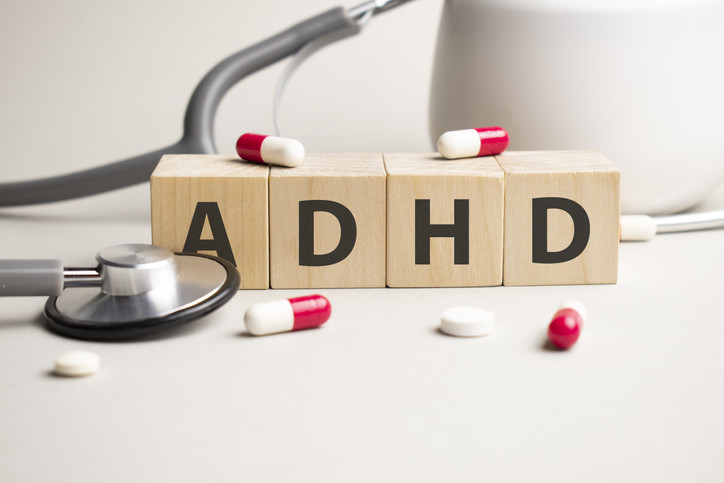
What are somatic workouts?

How to curb your stress eating

How to spot Parkinson’s disease symptoms

8 simple ways to reduce ultra-processed foods in your diet

Heart failure symptoms in women: How they’re different

GERD diet: Foods to avoid to reduce acid reflux

Strong is the new skinny

Everyday habits that sneakily weaken your bones

Don’t wait to get help for back pain

Correcting how you walk may ease osteoarthritis knee pain
Sleep Archive
Articles
Sleep apnea treatment lowers rehospitalization for heart problems in older adults
A 2022 study found that older adults with sleep apnea who are hospitalized for cardiovascular disease are far less likely to be rehospitalized within 30 days if they consistently treat their apnea with CPAP therapy, which keeps the airway open during sleep.
Don't want to go to bed? Dealing with bedtime procrastination
Bedtime procrastination often interferes with getting sufficient quality sleep, which is a pillar of good health. If you are guilty of staying up too late, there are things you can do to try to change your behavior.
Americans' use of prescription sleep medications drops dramatically
A 2022 study found a 31% reduction in Americans' use of prescription sleep aids from 2013 to 2018. The drop-off was even sharper among people 80 and older, who were 86% less likely to use FDA-approved sleep drugs by the end of the study period.
Are your medications keeping you up at night?
Many medications can affect sleep. These include prescription drugs as well as over-the-counter remedies. For example, decongestants, certain antidepressants, or beta blockers can make it hard to fall or stay asleep, and nicotine replacement medications can cause a person to have nightmares. Strategies to avoid drug-related sleep problems include taking the medication during the day, taking a lower dose, practicing good sleep hygiene (such as going to bed and waking up at the same time each day), or switching to a new medication.
Attention deficit disorder linked to higher heart disease risk
People with attention-deficit hyperactivity disorder, a condition marked by trouble focusing and impulsive behavior, may be more likely to have cardiovascular disease that people without the disorder.
How can I tell if I have a concussion?
Concussions occur when the brain bumps or twists inside the skull after a blow to the head. Signs of concussion include headache, eye pain or fatigue, neck pain or stiffness, imbalance, impaired depth perception, difficulty remembering, or sleep pattern changes.
What's the future of remote patient monitoring?
The miniaturization of electronics is leading to the development of next-generation devices to monitor health. People today are using various devices (typically smart watches) to measure their heart rate, the regularity of their heart rhythm, the quality of their sleep, their body temperature, and the levels of oxygen and sugar in their blood. And scientists are working on other devices—such as a thin strip of material that is pasted onto the skin—to constantly measure blood pressure, organ function, or certain body chemicals.
The Essential 8: Enhanced advice for a healthy heart
The American Heart Association revamped its online tool, My Life Check, designed to help people prevent cardiovascular disease. Along with other changes, the AHA added healthy sleep duration to the list of seven other factors assessed by the tool. Those factors are maintaining a healthy weight, not smoking, being physically active, eating a healthy diet, and keeping blood pressure, blood sugar, and cholesterol at acceptable levels. Each factor (now known as Life's Essential 8) are scored on a scale of 1 to 100 and used to generate a composite cardiovascular health score.
New advice on melatonin use in children
Melatonin is a popular over-the-counter sleep aid. But because it is sold as a dietary supplement it is not regulated, and recent warnings include reports of melatonin overdoses in children. If parents need help getting their child to sleep, there are other things they can try first.
Sleep added to list of essential healthy heart habits
The American Heart Association added sleep to its list of factors for cardiovascular health. The others are a healthy diet; physical activity; low levels of nicotine exposure; and healthy levels of weight, cholesterol, blood sugar, and blood pressure.

What are somatic workouts?

How to curb your stress eating

How to spot Parkinson’s disease symptoms

8 simple ways to reduce ultra-processed foods in your diet

Heart failure symptoms in women: How they’re different

GERD diet: Foods to avoid to reduce acid reflux

Strong is the new skinny

Everyday habits that sneakily weaken your bones

Don’t wait to get help for back pain

Correcting how you walk may ease osteoarthritis knee pain
Free Healthbeat Signup
Get the latest in health news delivered to your inbox!
Sign Up











